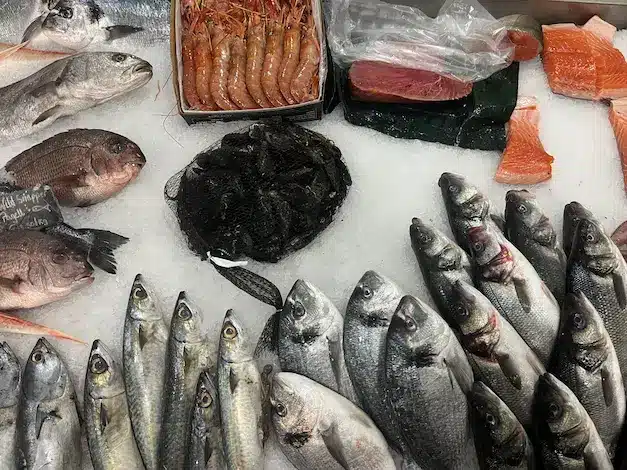
A fish fertilizer is an excellent option for green leafy vegetables due to its high nitrogen content. Using fish emulsion as a lawn fertilizer is particularly beneficial in early spring.
Fish fertilizer - your plants eat fish!
Fish has teh since the beginning of history been one of the most nutritious foods in the human diet. With an abundance of high-quality proteins and essential nutrients like Omega-3, phosphorus, potassium, iron, and iodine. However, its benefits extend beyond humans, also a preferred menu for lots of animals, as well as plants!
How to make fish fertilizer for plants
Fish remains can easily be turned into nutritious compost, consumed through the soil by your pescetarian leafy friends.
Various methods exist: Fish powder or Fish emulsion. The former involves grinding the spines and remains, while the latter comes in a liquid form, often offered at local garden shops.
Though homemade fish emulsion is possible to create. It’s rather complex process, demanding fish decomposition and constant stirring over several days. To avoid complications, opting for fish powder is advisable. Below is a basic guide for homemade fish powder
How to Guide - Make a Homemade Fish Fertilizer
You’ll need:
- Fish spines and remains (excluding heads)
- A tray – to place the fish remains to dry
- Mortar – to grind the fish remains to a powder texture
Procedure:
- Place fish spines and remnants outdoors exposing them to sunlight to dry out completely. Alternatively, arrange them on a baking tray and bake at low temperatures until they’re fully dried, obtaining a slight golden hue without burning.
- Grind the fish remains with a mortar or a food processor.
- Store your fish powder in a glass jar.
- Add one or two tablespoons of fish powder to your potting soil, blending it with the soil for root absorption.
How often should I use a Fish Fertilizer?
Fish fertilizers are as mentioned, very rich in nutrients. However, as most fertilizers, excessive usage may have adverse effects, therefore only use it during the growing period.
If plants are fed too much nutrients may cause weak growth, lack of flowering, or increased susceptibility to diseases. Therefore, it is very important to use it with caution, especially since homemade fertilizers have unknown levels of nutrients. Start by experimenting the effect on a few selected plants and learn the appropriate dosage and usage for the best result.
A general recommendation is to apply fertilizers, preferably organic, during the growth season, from early spring to early autumn.
Experts suggest that potted plants may need fertilization once a week if indoors and up to twice a week outdoors. In contrast, for those in gardens, monthly fertilization might suffice.
So, if you aspire to keep your plants beautiful, lush, and decorated with flowers, fertilize them when needed. This fish fertilizer is perfect for making the most of leftovers.
What are the benefits of fish fertilizer for plants?
Fish fertilizer is absorbed quickly by plants and is rich in N.P.K – nitrogen, phosphorus, and potassium, along with plenty of other nutrients such magnesium, iron, sulphur and other micronutrients, making them an excellent organic fertilizer, nurturing soil health and plant growth.
Fish fertilization may benefit the development of flower and fruit production. As well as building up a strong resistance against diseases and pests.
Spawning Salmon become nutrition for the Forest
When salmon travel up the rivers in Alaska for seasonal spawning and laying eggs, the adult salmon die and provide nourishment for the whole ecosystem. The forest surrounding the rivers is extremely lush and leafy, with green foliage everywhere you look.
